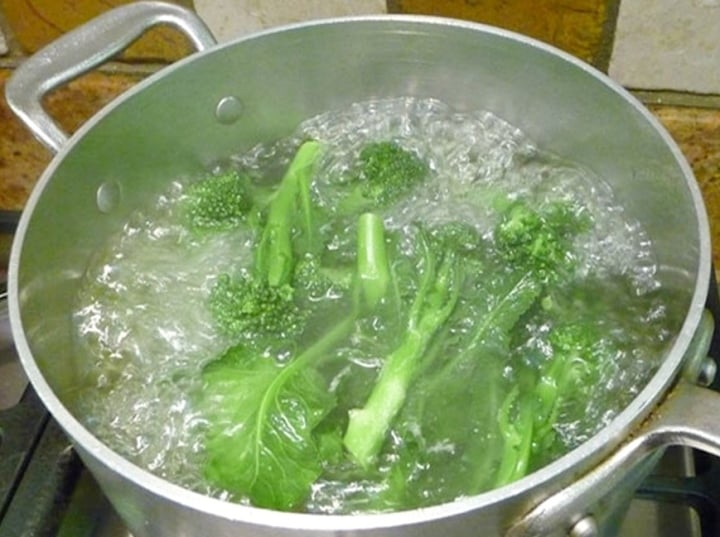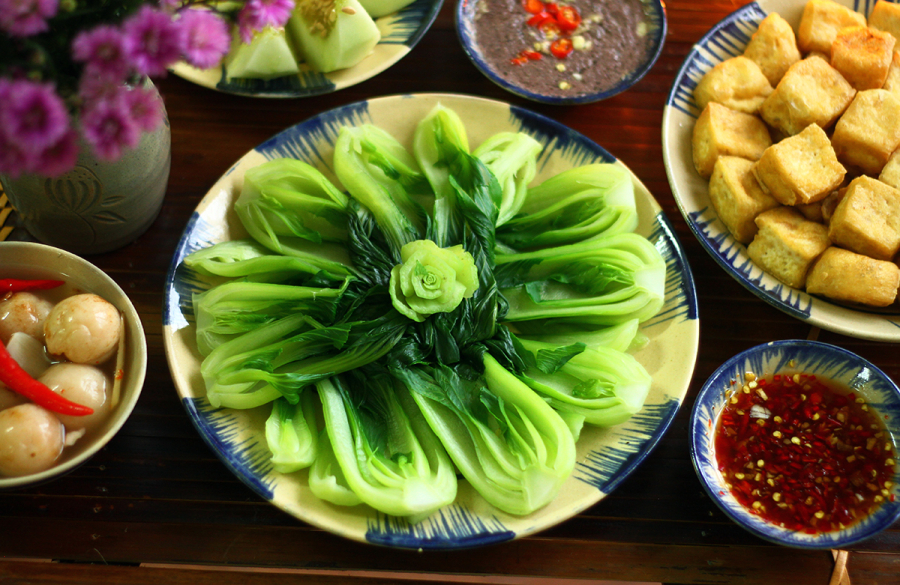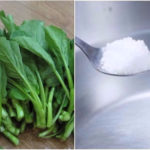Pick off leaves before boiling
The habit of many housewives is to think that picking off leaves and leaving only the young stems will make the vegetable dish crispier and sweeter than usual. But in fact, this means that you are wasting a lot of nutrients that exist in the leaves. At the same time, picking off the leaves separately when boiling makes the dish less crispy and unappealing.
Cut vegetables and wait before boiling
Many people usually cut vegetables and then wait for a long time before boiling. If you cut vegetables into small pieces and don’t boil them immediately, it means you are providing the conditions for the vitamins in the vegetables to be oxidized. At the same time, cutting vegetables too long before boiling makes the dish less fragrant and delicious.

Boil vegetables at low temperature
Boiling vegetables at low heat not only makes the vegetables lose their fresh green color and become yellowish, but also causes vitamin C and B1 to evaporate. And this makes your vegetable dish less fragrant and delicious.
Cover the pot when boiling vegetables
Covering the pot when boiling vegetables is not entirely wrong, it also helps you retain the nutrients of the vegetables. At the same time, covering the pot when boiling vegetables also makes it difficult for your vegetable dish to escape any remaining chemicals that can cause diseases.
However, in the context of serious food contamination, you should cover the pot until the water in the pot boils vigorously after adding the vegetables to allow some chemicals to escape with the steam.
Don’t eat cooked vegetables right away
When just cooked, vegetables are the most delicious and nutritious, so you should eat them right away. Many people tend to let the vegetables cool down before eating, but don’t know that if you eat them after 1 hour, you will lose 25% of the vitamins, and after 2 hours, you will lose from 35 to 47%.

Leave boiled vegetables overnight and eat again
If you feel sorry for the delicious and fresh boiled dish but don’t finish it and store it, even in the refrigerator, you are turning it into a toxic substance. Because when the vegetables are left overnight, the amount of nitrate present in the vegetables will turn into nitrite – a very harmful carcinogen for you.
Boil vegetables for too long
One of the mistakes when boiling green vegetables is that if you leave them on high heat, they will cook very quickly, even with some vegetables like water spinach and sweet potato leaves, just let them simmer for a minute and you can remove the vegetables.
“Noble” vegetables like cabbage are best steamed and eaten. However, many housewives are too cautious and afraid that the vegetables will not be fully cooked, so they leave them for too long. As a result, the vegetables become mushy and lose all their vitamins, and you will be lacking the nutrients that you should have received from the vegetables.





































